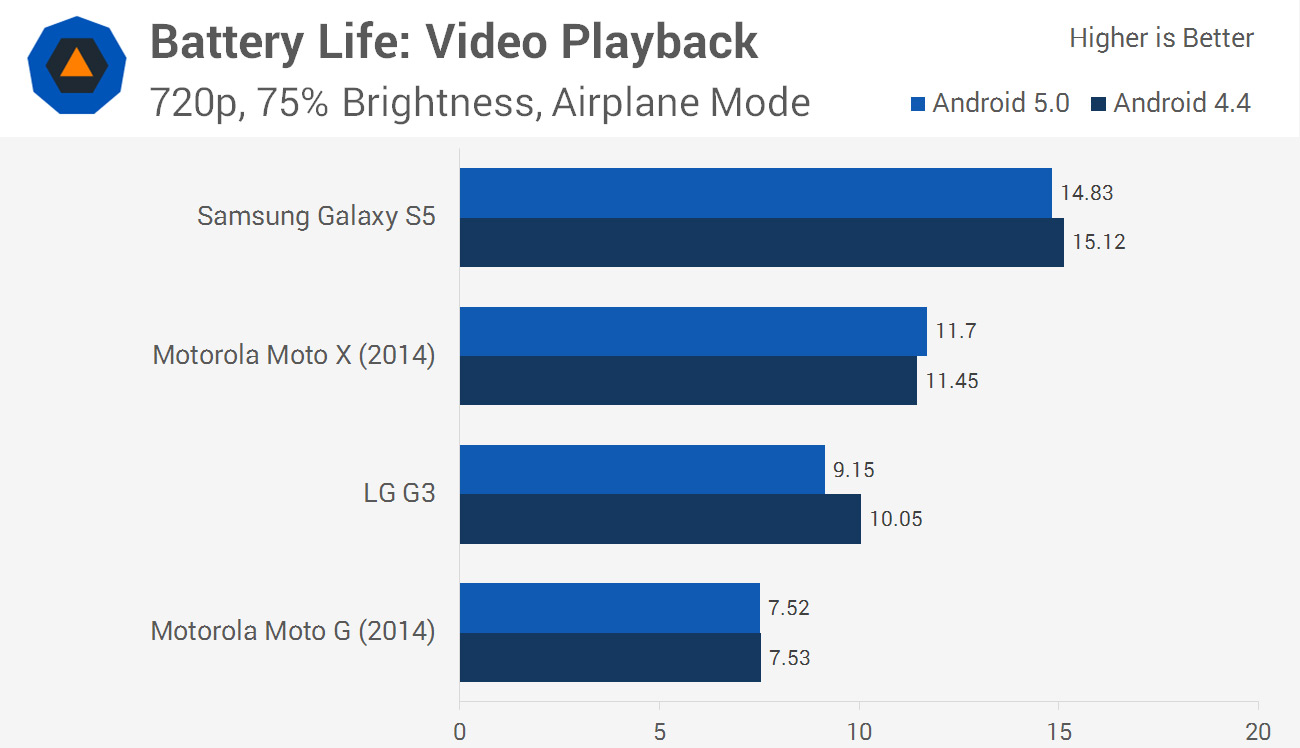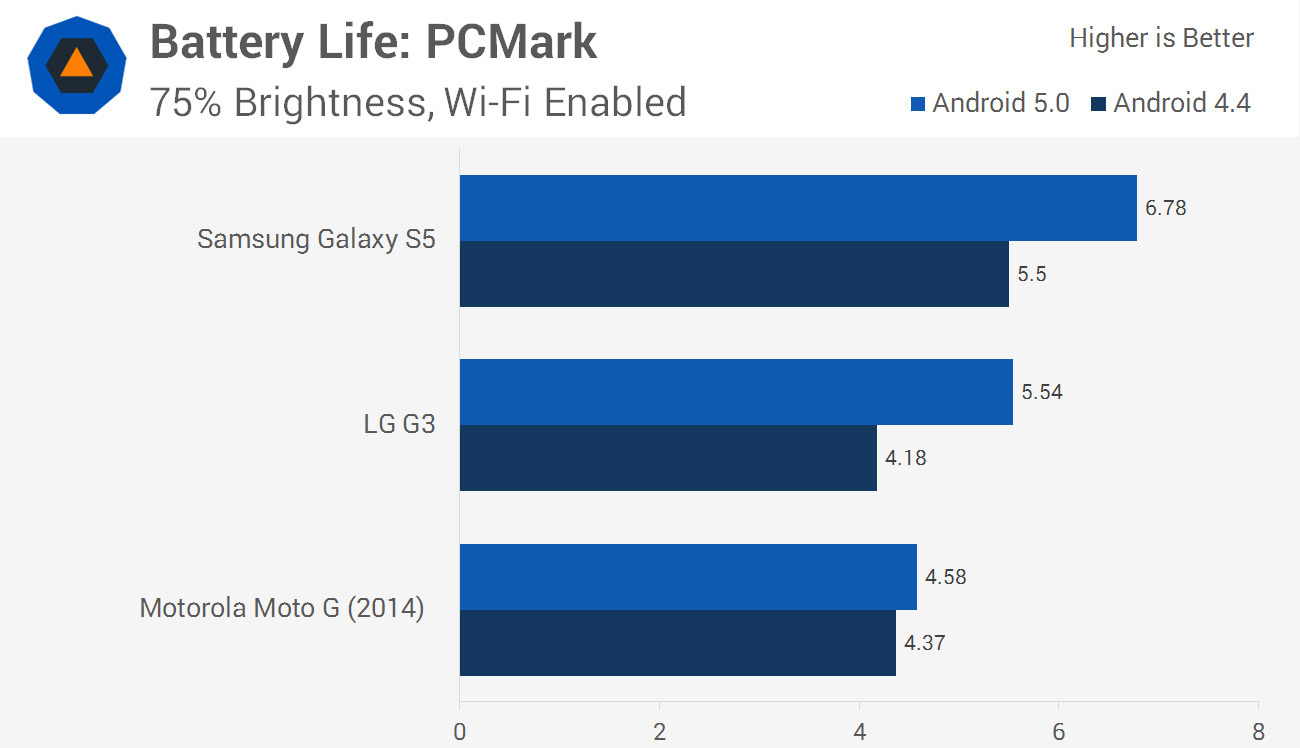Battery Life Gains
Battery life needs a little explanation. All the new battery-specific features and APIs implemented into Android 5.0 won't have an immediate effect on battery life, as developers will have to harness improvements to job scheduling and the like. As such, I'm not expecting to see any battery life differences in tests such as video playback and web browsing, which are mostly display and modem limited.
I've also thrown PCMark's battery benchmark into the mix, because it is the one test here that could benefit from Android 5.0's under the hood changes. As this is a high performance battery benchmark that tests the efficiency of the CPU (mostly), having more efficient code without as much overhead thanks to ART could theoretically improve battery life.
This is because the CPU won't have to waste as many clock cycles on inefficient processes, such as converting instructions from bytecode to native code on the fly. In turn this will create better peak performance (as we saw in the CPU benchmark portion of this article), which will help CPU-heavy tasks finish more quickly. Getting CPU-limited tasks to finish more quickly, or having these tasks waste less clock cycles, helps improve battery life by allowing the CPU to enter a low power state more quickly, and stay there for longer.
PCMark's battery benchmark simply loops the Work benchmark continuously, which on initial inspection might not benefit from having high performance tasks finish earlier. However there are several sections of the benchmark that are fixed-time, such as the video playback test and parts of the web browsing test. As such, the benchmark should benefit overall because CPU utilization is usually lower during these sections, and more time will be spent during these less intense sections out of the entire test run as the high performance tasks will finish sooner.




Results here were pretty much as I expected. Battery life was largely unchanged in our video playback and web browsing tests, but improved in PCMark by an average of 20%.
There's a couple of things to note here throughout the testing. Firstly, battery performance reduced on the Moto G in both our browsing tests. As I installed a version of Android 5.0 meant for the single-SIM Moto G, while I actually tested on the dual-SIM variant, the difference in modem software could have caused this reduction. A reduction of around an hour in each test indicates you should wait for an official OTA rather than jumping the gun like I did.
The LG G3 also suffered from the update to Android 5.0 in our Wi-Fi and video playback tests. For a device with average battery performance on Android 4.4, it's disappointing to see the update to Android 5.0 reduce battery life further. I'm not entirely sure what has caused these drops, but I suspect it has something to do with LG's under the hood changes. Maybe a minor update in the future can restore the battery performance of Android 4.4.
